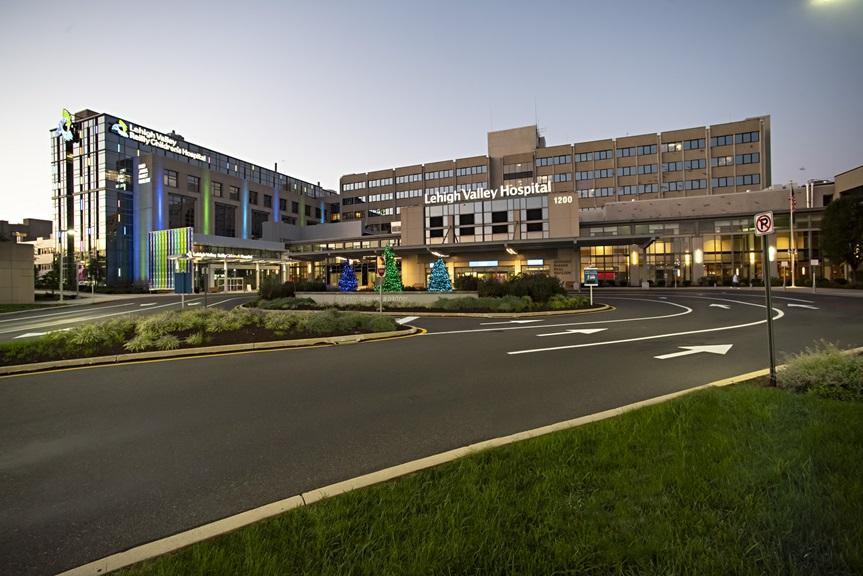Case Study: Recycling Pilot for Non-Hazardous Medical Plastic Waste

The medical plastic waste recycling pilot brought together B. Braun Medical Inc. (a medical device manufacturer of smart-infusion therapy and related products), Lehigh Valley Health Network (a nationally ranked premier health system based in Allentown, Pa.) and PureCycle Technologies LLC (an advanced recycler of plastic) to evaluate and evolve the concept of health care medical plastic recycling. PureCycle Technologies focuses on the recovery and recycling of polypropylene (PP), the targeted material for this pilot. Also engaged in this pilot were Cougle’s Recycling, Inc. of Hamburg, Pa., a material recovery facility (MRF) in the Lehigh Valley region of eastern Pennsylvania, and Kurt Duska Consulting of Girard, Pa., a plastics recycling industry expert and primary author of this report.
The goal of the pilot was to identify barriers to increasing nonhazardous medical plastic recycling rates at health care providers by instituting a collection and processing program aligned with the quality requirements of an advanced plastics recycler in the region. This effort was enabled by a grant from Pennsylvania’s Department of Human Services.
The report offers insights into the collection logistics, material analysis process, and the key findings and takeaways, including a checklist to help determine if you are ready to start a recycling program at your healthcare facility.
Objectives:
The objective of the medical plastic waste recycling pilot is to identify barriers to increasing non-hazardous medical plastic recycling rates at healthcare providers. This must take into consideration the impact on health care services, safety to employees, cost, and total environmental impact. According to the Healthcare Plastics Recycling Council (HPRC), U.S. hospitals generate about 28 million pounds of waste a day, with 20-25 percent of that being plastic products and packaging. Only a small percentage of plastics are recycled today. Plastic recycling at hospitals is less than 10%, which fills landfills, wastes natural resources, and increases carbon emissions.
Material Observations
- A total of approximately 18,000 lbs of materials were collected.
- Bags that were collected with a high concentration of blue wrap were much cleaner, with a higher percentage of target materials and a lower percentage of non-target waste items. Bag quality was likely impacted by collection area and medical procedures.
- A high percentage of non-target materials in mixed bags required increased transportation, sorting costs, and potential disposal fees.
- Paper fiber materials such as corrugated and paperboard were often included in bags, which drastically influenced costs and efficiency.
- The program met PureCycle Technology’s minimum acceptable quality standard of 75% target plastic.
Participants
B. Braun Medical Inc.
B. Braun Medical Inc. (B. Braun) is a leader in smart infusion therapy and safe and effective pharmacy products, patient and provider safety, and sustainable health solutions. Our purpose is to help providers constantly improve patient satisfaction and outcomes. With products and services created to help healthcare professionals focus on what matters most—their patients—we’re uniquely positioned to help health systems succeed now and in the future. B. Braun is headquartered in Bethlehem, Pennsylvania and is part of the B. Braun Group of Companies in the U.S., which includes B. Braun Interventional Systems, Aesculap® and CAPS®. The company employs 8,500 people at over 30 locations across North America.
Globally, the B. Braun Group of Companies employs more than 64,000 employees in 64 countries. Guided by its Sharing Expertise® philosophy, B. Braun continuously exchanges knowledge with customers, partners and clinicians to address the critical issues of improving care and lowering costs. To learn more about B. Braun Medical, explore our website.
Lehigh Valley Health Network
Lehigh Valley Health Network (LVHN) includes 13 hospital campuses, four in Allentown, two in Bethlehem, one in Easton, one in East Stroudsburg, one in Hazleton, two in Pottsville, one in Lehighton and one in Dickson City, Pa.; 28 health centers; numerous primary and specialty care physician practices; 20 ExpressCARE locations including the area’s only Children’s ExpressCARE; pharmacy, imaging, home health, rehabilitation and lab services; and preferred provider services through Valley Preferred. Specialty care includes: trauma care for adults and children, burn care at the Regional Burn Center; kidney and pancreas transplants; perinatal/neonatal, cardiac, cancer, orthopedics, neurology, complex neurosurgery capabilities including national certification as a Comprehensive Stroke Center, and robotic surgery in 10 specialties. Lehigh Valley Topper Cancer Institute, Lehigh Valley Heart and Vascular Institute, Lehigh Valley Institute for Surgical Excellence, Lehigh Valley Orthopedic Institute and Lehigh Valley Fleming Neuroscience Institute physicians provide the most advanced treatments. Lehigh Valley Topper Cancer Institute is a member of the Memorial Sloan Kettering (MSK) Cancer Alliance, an initiative that helps community providers improve the quality of cancer care and offers access to MSK clinical trials. Lehigh Valley Reilly Children’s Hospital, the community’s only children’s hospital, provides care in more than 30 specialties and general pediatrics. Lehigh Valley Hospital–Cedar Crest is ranked as the region’s No. 1 hospital for nine straight years and has been recognized among Pennsylvania’s top 10 hospitals for nine consecutive years by U.S. News & World Report. Lehigh Valley Hospital (LVH)–Cedar Crest, LVH–17th Street and LVH–Muhlenberg are the Lehigh Valley region’s only Magnet® hospitals for nursing excellence. Additional information is available by visiting LVHN.org or following us on Facebook, Twitter, LinkedIn and Instagram.
PureCycle Technologies LLC
PureCycle Technologies LLC., a subsidiary of PureCycle Technologies, Inc., holds a global license for the only patented solvent-driven purification recycling technology, developed by The Procter & Gamble Company (P&G), that is designed to transform polypropylene plastic waste (designated as No. 5 plastic) into a continuously renewable resource. The unique purification process removes color, odor, and other impurities from No. 5 plastic waste resulting in an ultra-pure recycled (UPR) plastic that can be recycled and reused multiple times, changing our relationship with plastic. www.purecycle.com

